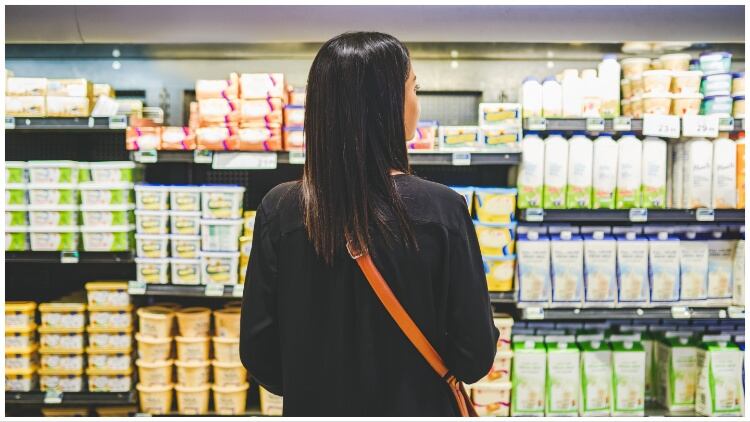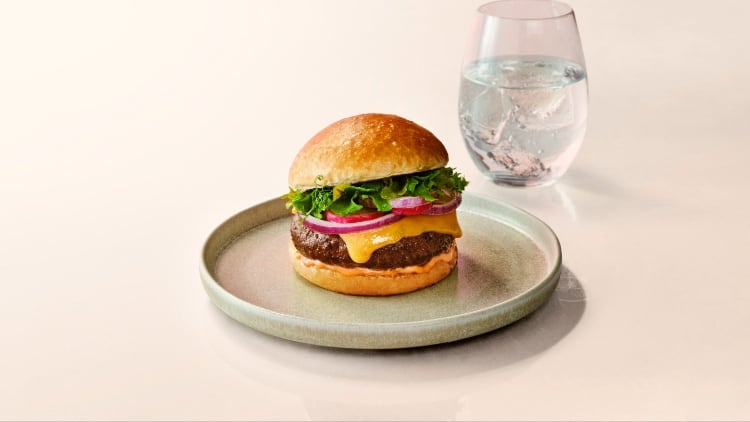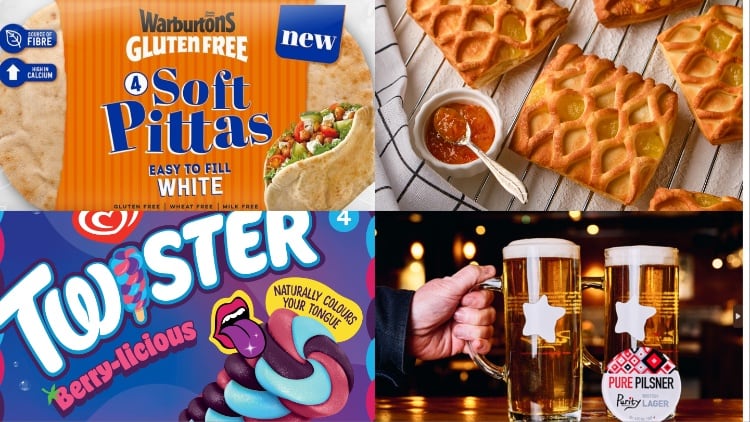A rate of 4% is the lowest seen since November 2021 and represents a decent fall when compared to February, when the annual rate of inflation was at 5%.
This translates to a price rise of 0.2% between February and March, far lower than the 1.1% monthly rise experienced during the same period a year ago.
While the inflation rate has now fallen in the last 12 months, prices remain high but stable with few dramatic changes month to month.
Between February and March, the annual rate eased in eight of the 11 food and non-alcoholic beverages categories, with the exceptions being vegetables, hot beverages and soft drinks.
During that period butter, whole milk and frozen seafood prices fell by 11.7%, 11.1% and 8.7% respectively, but olive oil increased by 38.9%, cocoa and powdered chocolate rose 18.5% and sugar was up 14.2%.
'Risks remain including increased instances of bad weather'
Karen Betts, CEO at The Food and Drink Federation, said that the falling rate corresponds with easing input price inflation experienced by manufacturers.
“This is good news for consumers – with food and drink price inflation rates now much lower than they were a year ago and with some prices in shops falling,” Betts added.
“However, risks remain, including the increasing instance of extreme weather which is impacting agriculture globally. This has been very visible in the UK in recent weeks with this winter’s wet weather causing widespread flooding on farmland. Inevitably, lower or poorer crop yields caused by bad weather have the ability to impact food prices.”
Betts also welcomed the news that another farm to fork summit was set to be held at No 10 during May.
“Food security should be a focus of this, and how all parts of the food system work together – and with government – to ensure the UK has a secure supply of good quality food and drink,” she continued.
“A central part of this is regulation, and ensuring this fosters investment in the UK, including in innovation and food science. Unfortunately, current government plans for ‘not for EU’ labelling will have the opposite effect, as will current government plans for Forest Risk Commodity regulations, where industry want the same outcome as government but current proposals are not well designed and will create unnecessary burdens for supply chains. Both could lead to a disinvestment in UK food and drink over time.”
Meanwhile, Nick Ryan, founder and CEO of revenue management consultancy firm Acumen, noted that the drinks sector was continuing to face pressure from inflation.
He explained: "Both hot beverages and soft drinks faced price rises, so the industry isn’t in the clear yet. Challenges for FMCG brands from supply chain shortages continue to add pressure on manufacturers to raise prices, further squeezing consumer budgets.
"Avoiding additional price hikes will be important for brands to maintain loyalty. Managing input and transportation cost pressures will remain a challenge for brands in the near-term. This requires them to have diligent inventory planning and improving production efficiency. We can collaborate with brands to creatively mitigate impacts on shoppers, by consulting on nuanced pricing and promotional strategies or selective investment trade-offs."
In other news, leading food producer Samworth Brothers has acquired The Real Wrap Co for an undisclosed fee.





